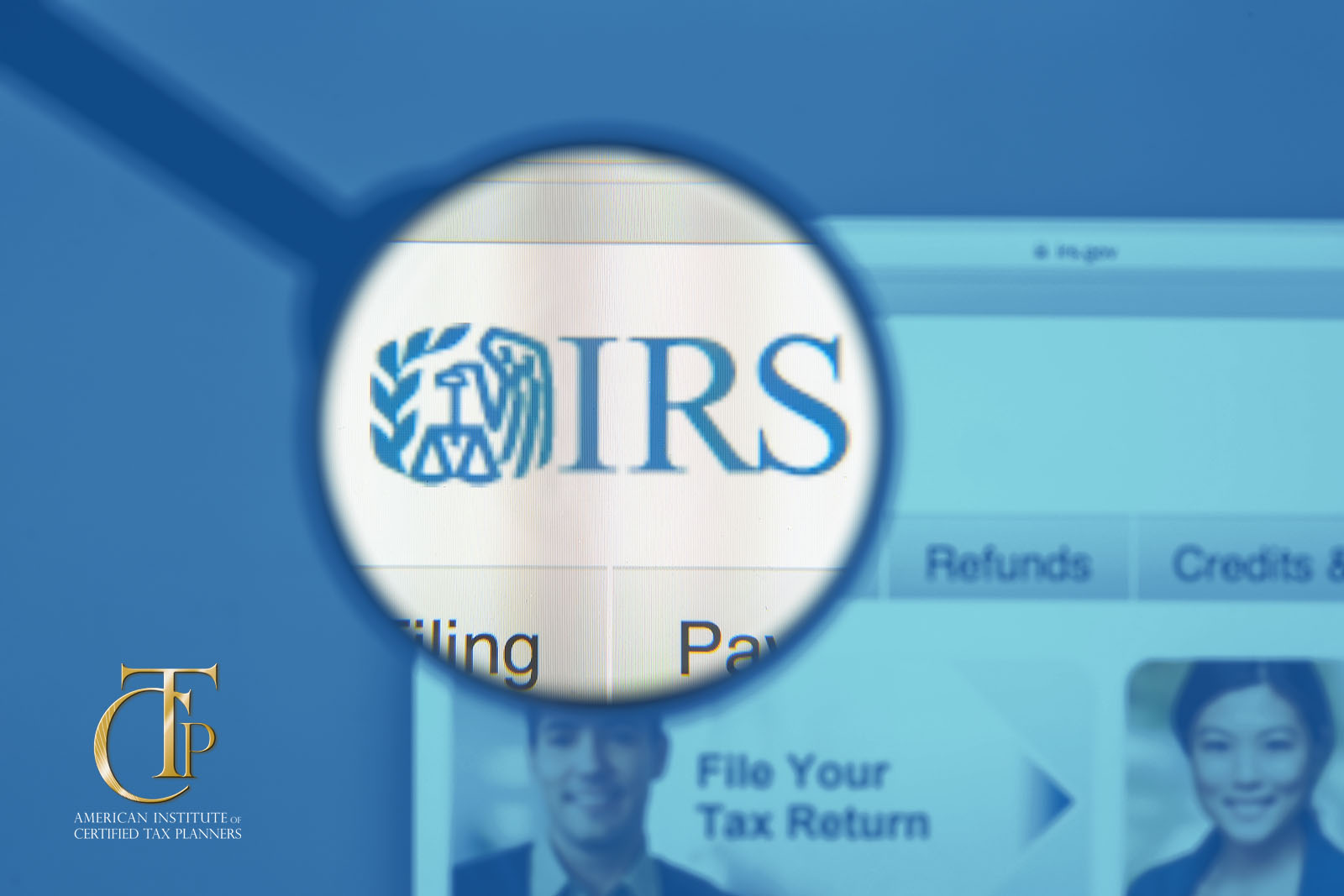An IRS audit can happen to anyone—but this is not an invitation to panic. With enough advance preparation, you can sail through an audit with surprisingly little stress. The first step in this preparation process is to make sure you understand the basics: what are the reasons you might be selected for an audit, how will you find out you are being audited, and what might an IRS auditor ask you for? Though working with a Certified Tax Planner is the best way to ensure you are prepared, you can begin the process by orienting yourself to the answers to each of these questions below.
What are Common Audit Triggers?
The most important thing to know is that taxpayers can be selected randomly for an audit. This is true no matter what your income is, so you must be prepared to defend each claim made on your tax return. However, you are more likely to be audited if one of the following factors is true:
- Your business is cash-based. This can include laundromats, restaurants, and stores with low price tags like a dollar store. If your store is located next door to a check-cashing place, this could also increase your chances of being selected for an audit, since it likely increases the number of cash payments you receive.
- You claimed a tax credit that has resulted in a lot of fraud. A recent example of this is the Employee Retention Credit (ERC). Originally created as a refundable tax credit for businesses whose employees were impacted by the COVID-19 pandemic, by the end of 2023 the government had launched 323 investigations involving over $2.8 billion of potentially fraudulent ERC claims. Even if you are qualified for it, just by claiming the ERC you will be at higher risk of an audit. In previous years, the same was true for captive insurance deductions. Keeping an eye on the news can help alert you to which credits or deductions the IRS is currently cracking down on.
- You submitted a large refund request on an amended tax return. The IRS will be on alert for fraud if your tax refund seems unusually high, and they may initiate an audit to require you to substantiate your claims.
- Your Schedule C reports over $250,000 in gross receipts or under $30,000 in net income. A Schedule C is used to report income or loss for a sole proprietorship or single-member LLC. Both conditions listed result in more than a 4% chance of getting audited. Filing a “phantom schedule C” is a common form of fraud in which the taxpayer or preparer claims a deduction for a huge negative loss either for a business that does not exist or a business in which the taxpayer did not materially participate.
- Your business is set up as a partnership with a complex structure. Because complex partnerships, such as joint ventures and real estate investment trusts, are prone to errors in tax reporting, the IRS is more likely to flag these tax returns.
Other audit triggers include missing a particular form or neglecting to sign the tax return. Fortunately, these and other triggers are usually disclosed by the IRS, along with the industries they are currently looking into, so a little research can go a long way in helping you prepare.
How Will You Know You Are Being Audited?
The IRS will always contact you initially via mail. At the moment, the IRS is not using email or telephone calls to initiate an audit, so you should be wary of potential scams if you receive an audit notice through any communication channel aside from certified mail. In previous eras, the IRS would send agents in person to conduct audits, but this resulted in safety issues, so you will typically not meet an agent unless they opt to conduct a site visit, an inspection, an observation, or an interview, all of which they would schedule ahead of time.
If you are working with a Certified Tax Planner, you might ask if they offer advanced audit monitoring. Some tax planners use software that allows you to give them power of attorney, so they will get an electronic alert before you receive an IRS audit notice in the mail, giving them time to prepare documentation before the audit even begins.
What Might the IRS Ask for?
First, your auditor may ask for verification of any claim you made on your tax return. If your return is randomly selected, your auditor may be looking at one specific area of tax that the IRS wants to collect data on. For instance, if the IRS wants to learn more about how Etsy store owners report income, they may request documentation from you related to that. They may look at specific SIC codes—which indicate your business industry—and send out correspondence audits to a sampling of people that claimed that particular SIC code. This helps the IRS build their processes and provides them with a better understanding of the issues that might result in deficiencies that they can collect.
Auditors will often ask to look at books and records, though they should technically just be reviewing a sample versus vetting every single transaction. Often your Certified Tax Planner can guide you on what is required of your specific industry and what auditors will be looking for, whether that’s unreported cash receipts, rebates, or other common vessels for fraud within your sector.
Your auditor may also ask for an in-person meeting. A best practice is to try to meet at the IRS office rather than your business office if possible. This is especially true if you work from a home office and claimed the home office deduction on your return. The IRS auditor will be on alert for anything that might disallow that deduction, even if they are not interpreting what they are seeing correctly. The auditor could see an old family photo hanging on the wall and deduce that the space is not used for business—though this sounds like insufficient reasoning, small things like this can create a perception in an auditor’s mind that may cost you. You may also choose to meet at your Certified Tax Planner’s office, which can serve as a more neutral space.
If the auditor does ask for an interview, consider who should lead the conversation. You are allowed to use a power of attorney to require that all communication goes through your Certified Tax Planner. This can be a wise move, since your tax planner will have better knowledge of what seemingly innocuous comments could put an auditor on red alert. Auditors may ask to speak with other employees at your company, so you should also prepare them on what to say and when to defer to someone else to answer certain questions.
Summary
Don’t rely on the “audit roulette” method where you count on never being selected for an audit. Even if your tax return is filled out perfectly, you can still be randomly selected for an audit and will need to provide documentation supporting any claims you made. Make sure you are aware of any common IRS audit triggers that could apply to your tax return and that you have the necessary evidence to support each of your tax positions.
The most reliable way to ensure you are prepared for an audit is simply to work with a professional who already knows the ins and outs of good documentation. To get started, reach out to a Certified Tax Planner today.





